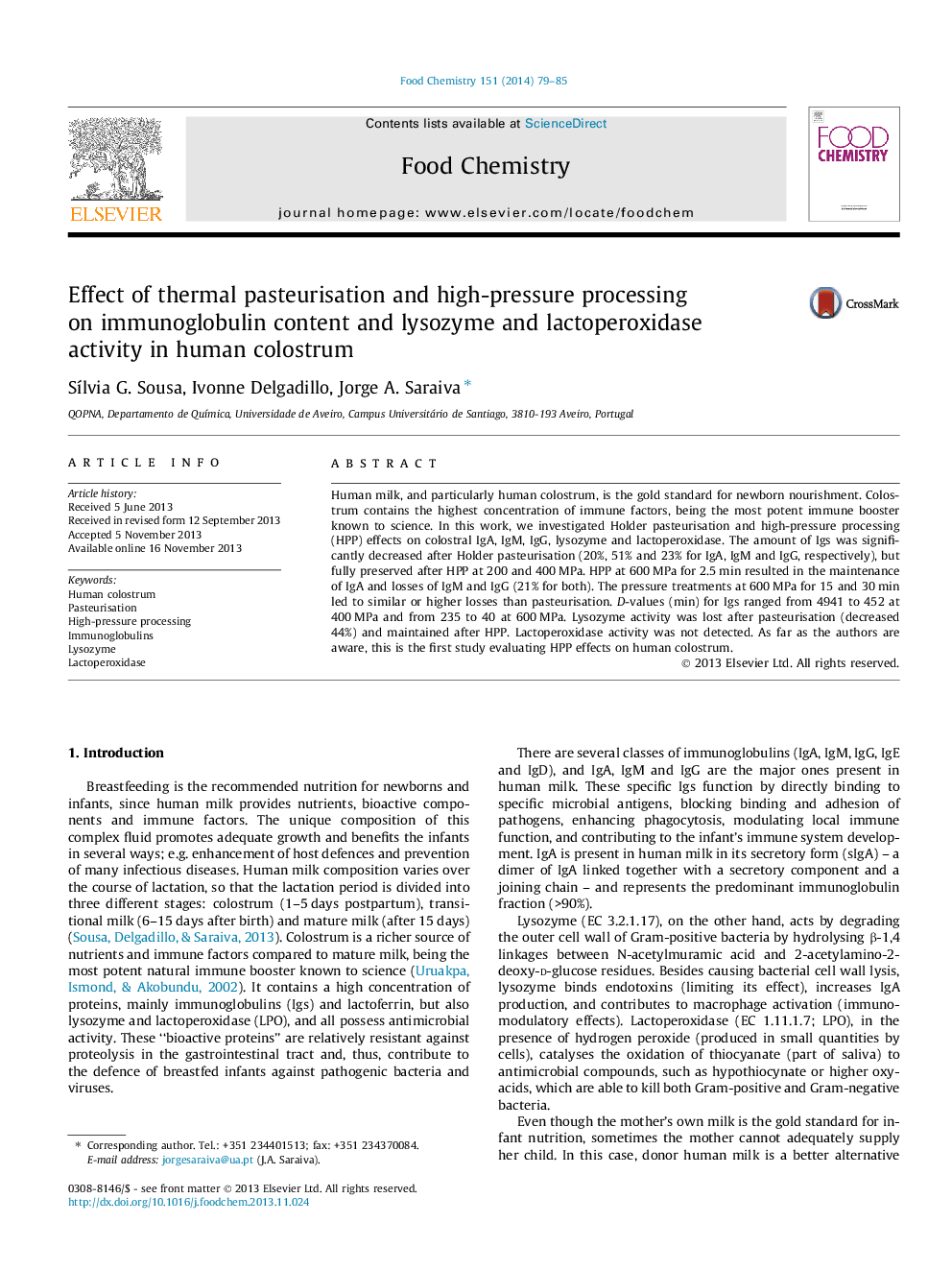| Article ID | Journal | Published Year | Pages | File Type |
|---|---|---|---|---|
| 1185204 | Food Chemistry | 2014 | 7 Pages |
•Thermal pasteurisation decreased immunoglobulins (Igs) A, M and G by 20%, 51% and 23%.•High pressure treatments (200/400 MPa, up to 30 min) had no/small effect on Igs.•D-values (min) for Igs ranged from 4941 to 452 at 400 MPa and from 235 to 40 at 600 MPa.•Activation volumes (Va, cm3/mol) were −19.8, −44.5, and −47.3 for IgG, IgA, and IgM.•Lysozyme activity was 44% lost after thermal pasteurisation but not affected by pressure treatments.
Human milk, and particularly human colostrum, is the gold standard for newborn nourishment. Colostrum contains the highest concentration of immune factors, being the most potent immune booster known to science. In this work, we investigated Holder pasteurisation and high-pressure processing (HPP) effects on colostral IgA, IgM, IgG, lysozyme and lactoperoxidase. The amount of Igs was significantly decreased after Holder pasteurisation (20%, 51% and 23% for IgA, IgM and IgG, respectively), but fully preserved after HPP at 200 and 400 MPa. HPP at 600 MPa for 2.5 min resulted in the maintenance of IgA and losses of IgM and IgG (21% for both). The pressure treatments at 600 MPa for 15 and 30 min led to similar or higher losses than pasteurisation. D-values (min) for Igs ranged from 4941 to 452 at 400 MPa and from 235 to 40 at 600 MPa. Lysozyme activity was lost after pasteurisation (decreased 44%) and maintained after HPP. Lactoperoxidase activity was not detected. As far as the authors are aware, this is the first study evaluating HPP effects on human colostrum.
